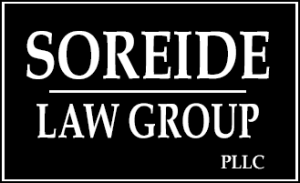by Charles A. Stampelos
The scenario is this: You have graduated from college and you have finished two years of law school. You worked to earn good grades with the expectation that you will graduate and become a member of The Florida Bar. You will be taking the Florida bar examination in a year and are reviewing the bar application now.
As you study the lengthy application, your anxiety level soars because you are asked to reveal that you have misdemeanor convictions for burglary and theft, that you are in arrears on several credit cards and loans, and that you have numerous traffic violations, and your drivers license has been suspended.
You must advise the board of your mistakes and be absolutely candid in your explanation. A lack of truth and candor during the application process will land you in scalding water in the investigative and formal hearing process and possibly put you in another line of work.
After having disclosed these facts, you may expect the board to invite you to an investigative hearing. You are entitled to be represented by counsel or you may go alone. The investigative hearing is a serious matter. Treat it as such. It bears repeating: A lack of candor during the bar application process, including the investigative hearing, could lead to your not being recommended for admission.
After the investigative hearing, the board will make one of the following determinations:
(a) that [you] have established [your] qualifications as to character and fitness;
(b) that a Consent Agreement be entered into with [you] in lieu of the filing of Specifications pertaining to drug, alcohol or psychological problems. In a Consent Agreement, the Board shall be authorized to recommend to the Court the admission of the applicant who has agreed to abide by specified terms and conditions upon admission to The Florida Bar;
(c) that further investigation into [your] character and fitness is warranted;
(d) that Specifications be filed charging [you] with matters which if proven would preclude a favorable finding by the Board.
Fla. Bar Admiss. R. 3-22.5.
Based on the results of the investigative hearing, the board decides to file specifications (the charges) and you desire to contest them. You must answer them under oath. If you do not answer, the specifications are deemed admitted. Fla. Bar Admiss. R. 3-23, 3-23.1. Barring reaching a consent agreement as provided in Rule 3-22.5(b), you will proceed to a formal hearing. See Fla. Bar Admiss. R. 3-23.2 for a discussion of the formal hearing process, including but not limited to the notion that the “technical rules of evidence” do not apply. Witnesses can be subpoenaed by you and the board’s counsel. Pursuant to its procedures, the board will give you a copy of any exculpatory material and statements given to the board by witnesses who will testify live at the formal hearing. You may also obtain copies of the board exhibits to be offered at the formal hearing and copies of any documents you furnished the board during the application process, and copies of documents third parties (with their consent) furnished the board. However, except as noted here and in the admission rules, you are not entitled to a copy of the board’s investigative file. See generally Florida Board of Bar Examiners re: Interpretation of Article I, Section 14d of The Rules of the Supreme Court Relating to Admissions to the Bar, 581 So. 2d 895 (Fla. 1991); Fla. Bar Admiss. R. 1-60-1-64 regarding the scope of confidentiality of the application process.
Your formal hearing will be conducted before a quorum of the board which shall consist of not less than five members of the board and will not include any member who participated in the investigative hearing. This provision may be waived with your consent. Fla. Bar Admiss. R. 3-23.2.
If you have committed one or more acts of misconduct, you may be facing an investigative or formal hearing. In order to have any reasonable expectation of gaining admission, you must plan ahead and develop a plan and begin your rehabilitation now.
Soreide Law Group represents those seeking admittance to the Florida Bar in investigative hearings, and formal hearings. To speak to a lawyer please call: (888)760-6552 or visit our website at www.floridabarhearing.com.
